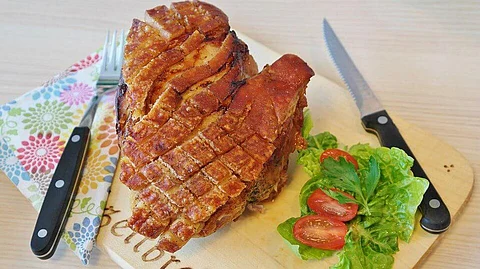Patients who have Crohn's Disease, also referred to as Terminal Ileitis – though some forms of TI can be curable – is similarly instructed to forego green leafy vegetables, and sprouted lentils like moong, in addition to raw salads, because they produce gas. What is otherwise healthy to the community of workout addicts, is the bane of TI patients. Additionally, intestinal disorders like TI, Colitis, IBS (Irritable Bowel Syndrome), IBD (Inflammatory Bowel Disorder), and Gastritis, render the victim Lactose Intolerant, which sets in as a symptom of their respective condition. This means that they not only must avoid many greens, they have no recourse to a vegetarian protein intake through milk and milk products, either. What about soy then? Advocates of vegetarianism and veganism swear by soy, claiming it to be a superfood. Well, soy is quite indigestible to people with an intestinal problem. Intestinal disorders make the small and large intestines incapable of absorbing nutrients. No matter how nutritious the plant food that is being eaten, most of it is expelled by the digestive tract of a patient with a lingering stomach disorder. By a quirk of fate, white meat and animal proteins like eggs and seafood, become central to such persons and their diet. Animal proteins accelerate gut healing, something that is constantly needed by people with intestinal disorders as well as other forms of Autoimmune Diseases.


